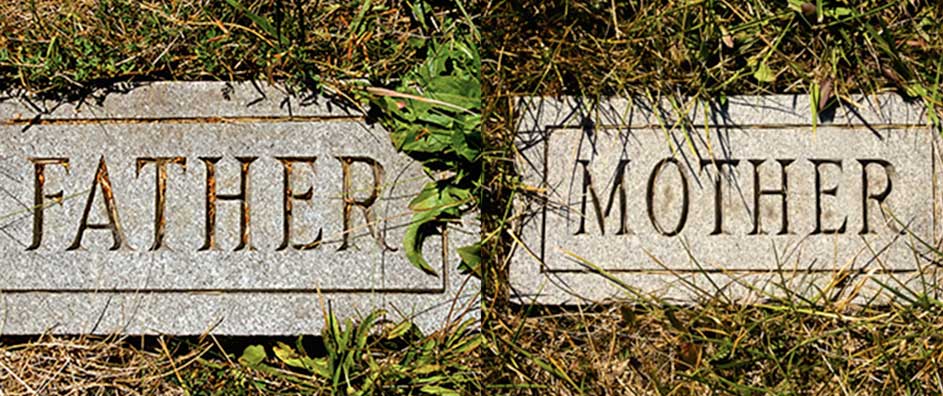In the tapestry of human experience, grief serves as a poignant thread, interwoven with the fabric of love, loss, and remembrance. The Bahá’í Faith offers a profound framework for understanding and navigating the complexities of grief, particularly concerning the loss of one’s parents. This article delves into the Bahá’í perspective on grief, particularly focused on honoring departed mothers and fathers, shedding light on the philosophical underpinnings and practical expressions of this experience.
The Nature of Grief in the Bahá’í Context
For Bahá’ís, grief is recognized as a natural and, importantly, a universal human experience. It reflects the deep bonds of love that exist between individuals, particularly between parents and their children. Bahá’u’lláh, the founder of the Bahá’í Faith, teaches that the soul is eternal, and upon death, it transitions to the next phase of existence. This belief fosters an understanding that death is not an end, but rather a transformation—a shift that allows the departed to continue their spiritual journey and growth in the realm of the spirit.
This perspective offers comfort to the bereaved, allowing them to reframe their loss. Grieving is not merely an emotional response to death; it is an acknowledgment of life’s transitory nature and a reflection on the legacy left behind by those who have passed. Thus, the act of grieving becomes a spiritual exercise, embodying both sorrow and profound remembrance.
Honoring the Memories of Parents
To honor one’s departed parents is to elevate their memory and to perpetuate the values they instilled in life. In Bahá’í teachings, acts of kindness, service, and dedication to community are seen as luminous tributes to the lives of those who have passed. Engaging in these acts contributes to the spiritual development of both the honored and the honorees. Thus, it becomes imperative to articulate the various ways in which one can celebrate the enduring legacy of their parents.
1. Spiritual Practices and Observances
In the wake of a parent’s passing, one can develop a set of spiritual practices that facilitate healing and connection. Regular prayer and meditation are recommended as vehicles for communion with the departed. Bahá’ís believe in the transformative power of prayer, which can forge a connection to the spiritual realm, inviting the presence and comfort of the departed soul. Hosting memorial services or gatherings, where friends and family can share memories and engage in collective prayer, can also provide solace and reinforce community bonds.
2. Legacy Projects
Creating a legacy project in memory of one’s parents can serve as an enduring testament to their influence. This might include establishing a scholarship fund, participating in community development projects, or advancing social causes that resonated with them. Such endeavors not only honor their principles but also imbue the community with lasting benefits, modeling the Bahá’í principle of service to humanity.
3. Reflective Writing
Writing can be a cathartic outlet for processing grief. Composing letters or journals directed to the deceased parents serves as both a means of expression and reflection. In these writings, individuals can articulate their feelings, reminisce about shared experiences, and seek closure. This practice encourages a sacred dialogue with the departed, allowing individuals to contemplate their parents’ lives while nurturing their personal grief.
4. Celebrating Life and Values
The commemoration of one’s parents can also manifest in the celebration of their birthdays or other significant dates. These celebrations should encapsulate the values and virtues they espoused, fostering an environment where family members and friends can reflect on those teachings. Activities that align with the parents’ beliefs, such as charitable giving or communal gatherings, can further embed their legacy within collective memory.
The Role of Community Support
In Bahá’í communities, the collective experience of grief is often shared. The communal approach serves as an integral component in navigating loss. Bahá’í teachings stress the importance of community, not only in times of joy but also in times of sorrow. Within this framework, mourning can be transformed into a collective journey of healing and remembrance. The community can rally to offer emotional and spiritual support, fostering an environment where sorrow is recognized, yet balanced with hope and affirmation of life.
Acceptance and Resilience
Ultimately, the Bahá’í perspective encourages individuals to embrace their grief, transforming it into an opportunity for personal growth and resilience. Recognizing the impermanence of life leads to a deeper appreciation for the time spent with loved ones. This acknowledgment of life’s transient nature fosters a sense of gratitude, encouraging the bereaved to live fully in honor of their parents’ legacy.
The Journey of Grief in a Bahá’í Life
In conclusion, navigating grief, especially regarding the loss of parents, is a profound journey laden with both sorrow and rich opportunities for reflection. The Bahá’í teachings provide a robust framework that encourages individuals to honor their departed loved ones through a tapestry of spiritual practices, collective remembrance, and community support. This journey, marked by emotional turmoil, simultaneously opens avenues for personal and collective growth, illustrating the interplay between love, loss, and legacy in the human experience.
Through honoring the memories of departed parents, individuals not only keep their spirits alive but also contribute to the ongoing narrative of love, continuity, and resilience that defines the Bahá’í Faith. Grieving, thus, becomes not merely an act of sorrow but a testament to a life well-lived and a bridge to an enduring spiritual connection.
